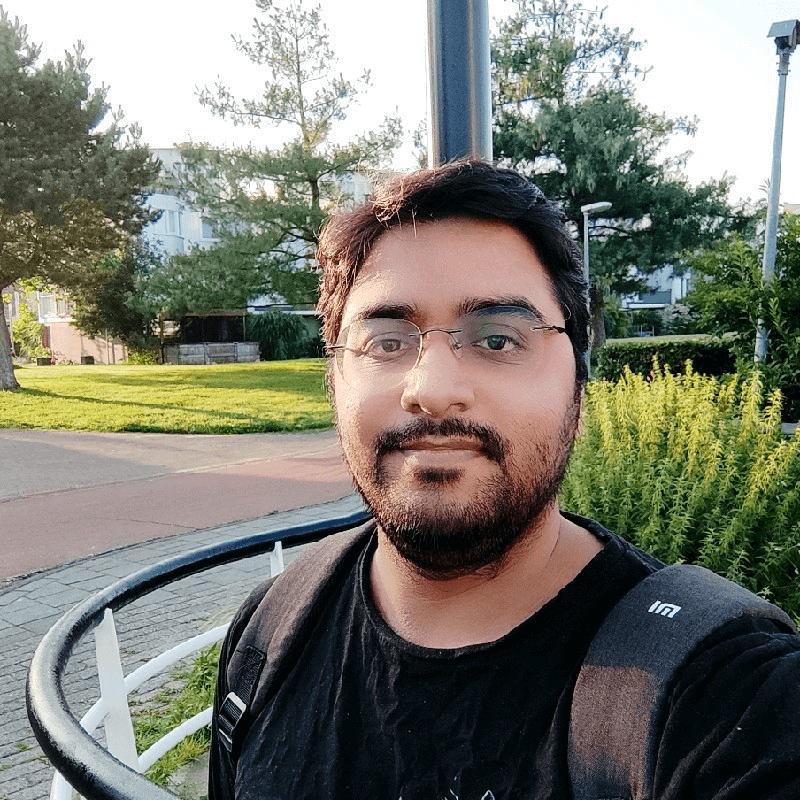I shall warn you now that this will be personal and it might not be useful to a general audience; but hey, we all think we are going through something unique when many of us are actually going through the same experiences, so who knows!
My PhD journey started out at the Indian Institute of Roorkee in 2018 under Dr. Partha Pratim Roy. I was happy that I would get to work on an EEG (a device capable of reading electrical signals generated by our brain), as I have always wanted to work in AI and build Artificial General Intelligence (AGI), and starting with the brain looked promising. However, with my background in computer science I was more inclined towards the computational aspects, but at the same time I have always been interested in what might be the mechanics of the brain. Whilst contemplating I realized that without psychology and neuroscience, it is not possible to really understand the brain mechanics.
Fortunately, at the same time Marieke van Vugt (my supervisor at the University of Groningen) visited our college and she explained her research. She uses both psychology and neuroscience and she was looking for students with a machine learning background. Soon after her visit, the government of India floated a program known as “SPARC” (Scheme for Promotion of Academic and Research Collaboration). With Marieke, we wrote a project on identifying depression using machine learning titled “Cognitive Signatures of Depression” and I am currently working on this topic as part of my PhD.
Whilst waiting for the results (although I spoiled the result!), Marieke asked me to join a Winter School at IIT (Indian Institute of Technology) Mandi where she was a guest speaker and I readily agreed. It was at IIT Mandi that I got to know Prof. Varun Dutt and I had the chance to work under him for two months where we worked on building cognitive models for reinforcement learning. Whilst doing this internship, Dr. Sushil Chandra from DRDO (Defence Research and Development Organisation), Delhi, India visited IIT Mandi and to cut it short, I had the chance to do an internship there as well.
At the same time, the “SPARC” project got approved and Marieke and I started working on the project remotely with the plan of me visiting Groningen in March 2020. Yes! My flights got cancelled and I had to wait a whole year before I finally got the chance to visit Groningen. I then spent six months in Groningen collecting EEG data whilst people were meditating , and I am currently working on building a classifier to identify whether people were actually meditating or not. This was in brief, the chronological journey of my PhD, which up until now seems very exciting and filled with small successful stints.
However, there are various issues lurking in the background that I am still facing. For example, it turns out that research is really diverse and the more interdisciplinary you go, the harder it becomes to find the middle path. As I mentioned earlier, I wanted to work towards building AGI solutions, but even after working with so many people I did not get to work on AGI. In addition, the chances of me working on AGI have gotten even worse since I am now working on psychology and computational neuroscience, and I must admit that I am kind of disconnected with the state-of-the-art deep learning research as well. Although I try my best to stay connected and convince my supervisors to let me use the latest methods, it is still a struggle.
What I am trying to say is that a PhD is a long journey full of ups and downs, but you need to realize sooner or later that it is “you” who is responsible for the journey. You should always take a stand for what you want to do, and you should be ready for the adverse outcomes as well. I realized this it quite late, but I am trying to sort things out now. The other point I would like to make is do not jump at every opportunity. During your PhD you will get many opportunities because academia is a very small group of connected people and internships are very easy to get through your supervisor’s network. However, you should always have a long-term goal in mind, and you should only choose the means to the end.
Lastly, with the government of India aggressively promoting start-ups and my supervisor being super generous, along with a colleague, I have founded CogXRLabs where we are trying to build diagnostic solutions using state-of-the-art deep learning solutions. We plan on improving the healthcare sector in India and providing affordable healthcare to each citizen. Now to finish, I would like to summarize this article as per the title. The resolutions that I had in mind when joining my PhD retrospectively, what are the things that I would have done differently and some reflections with a small wrap-up. To summarize:
Resolutions
Understanding the brain, contributing to open sources, discover/invent novel algorithms, build AGI.
Repentance/Advice
1) I should have studied signal processing, neuroscience, statistics, and optimization thoroughly.
2) I should have focused on completing things one at a time instead of doing multiple things simultaneously.
3) Not all that glitters is gold, p-values should not be the only answer, correlation is not causation.
4) Always, and I repeat, always, try to contribute to open sources.
5) Understanding the brain is hard, harder than anything we know, as it is kind of a universe in itself.
Reflections
Although I have not presented a significant contribution to any field (at least as of yet), I have realized that it is hard; specially if you are working in a multi-disciplinary field. So I shall keep trying to learn more and maybe someday I will be able to write a paper which I am proud of. I would also like to see the start-up providing real solutions to the healthcare problems in India and be a part of the success story which India is currently writing.
Wrap Up
Having gained some amount of familiarity with multiple domains, and with a desire to contribute to the society, I would like to build state-of-the-art AI solutions to real world problems. At the same time, I will always keep an eye on AGI and ultimately start working on building AGI the way I have always imagined.
Thank you for reading and please do get in touch if you connected with this article and want to discuss more.




